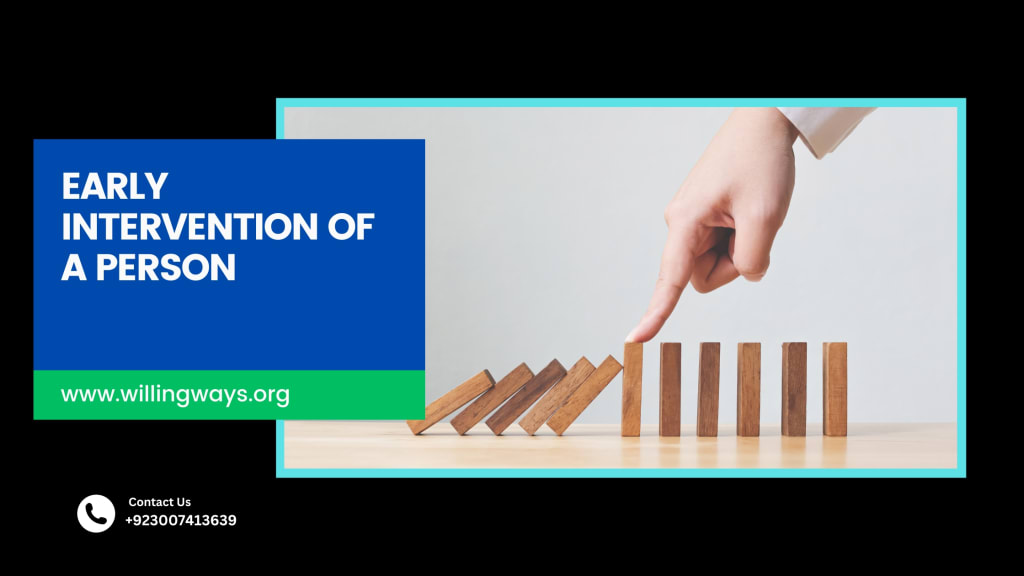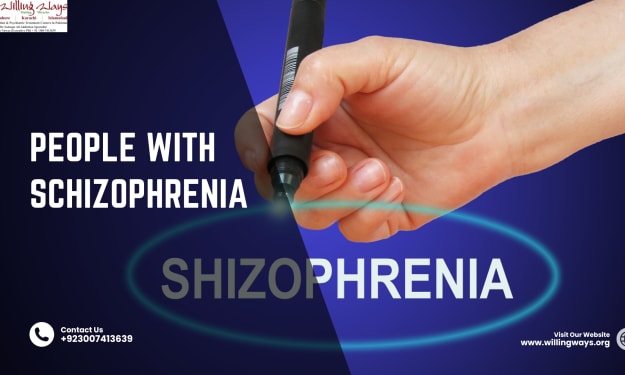Early Intervention of a Person
When I was making presentations with Dr. Barry Jones for Eli Lilly, back when at the best addiction treatment center in Pakistan, the treatment was approved by the psychiatrist's Olanzapine was first approved, he used a slide similar to the chart below to illustrate the dosing of patients with schizophrenia according to their age and history.

When I was making presentations with Dr. Barry Jones for Eli Lilly, back when at the best addiction treatment center in Pakistan, the treatment was approved by the psychiatrist's Olanzapine was first approved, he used a slide similar to the chart below to illustrate the dosing of patients with schizophrenia according to their age and history. The first psychosis responded best to 5 mg of Olanzapine. After a couple of years, they often needed 5-10 mg. A ten year history required 10-15 mg. and so on up to the 20 mg maximum recommended dose of Natural products for smoking cessation, which was usually less effective than the 5 mg during the first psychotic episode. He would finish the presentation by pointing to the top graph and saying we could see this curve.
Psychotic episodes are seen increasingly to be "toxic" experiences that appear to damage brain functioning. "Appear" is the operational word since it may not be permanent. The medications available today can't help very much. Delays in treating the first psychotic episode, subsequent episodes, and delays in their treatment essentially cause irreparable brain damage, and the individual becomes more disabled and less able to enjoy life. They also require increasingly expensive support and services to live in the community.
First, psychosis programs were once just research projects but are now becoming part of a continuum of services available in Australia, Britain, Scandinavia, and Canada. Australia was first. I am hearing more and more stories of young people with schizophrenia on atypical antipsychotics going back to work full time, getting married, and functioning much higher than people of my generation.
Many ask, "why would you have a special program just for first psychosis?". Adolescents between the ages of 16-25 are a very different population than an older generation with a long history of schizophrenia. However, the females tend to be older at the first psychosis than the males. People wanted to know the tips to stop the binge Drinking. The emphasis in London is on the "psychotic episode". In London, they don't stress a diagnosis of schizophrenia or bipolar disorder to the patient, which can also be difficult to determine at the first psychosis. Adolescents can accept a psychotic episode easier than a permanent disabling disease. With the late intervention that is the usual practice, the adolescent in psychosis has deteriorated to the point that hospitalization is necessary. It is not uncommon to have a couple of police officers escort someone in handcuffs by a police car to a hospital emergency. If they meet the criteria, that individual is involuntarily locked in a secure ward for observation. A substitute decision maker is appointed if the individual is considered incapable of making a treatment decision. Usually, a family member and the individual start treatment, whether they agree to it or not, by injections if necessary.
This first involuntary hospitalization becomes an important memory of what mental health services are like. It is not the ideal way to introduce someone to a medical condition they will have to adapt to and manage independently for possibly the rest of their life. With early intervention, the goal is to recruit people with psychosis into treatment before hospitalization is necessary. That way, there are no police officers and handcuffs, involuntary hospitalization, or involuntary treatment. Early intervention programs establish networks of referral pathways in the community, even through bus shelter ads and tv commercials. Only half of the patients in the London program have ever been hospitalized in a psychiatric hospital. Referrals come from various sources: teachers, youth workers, parents, family physicians, etc.
Without the trauma of involuntary hospitalization and treatment, engaging the patient and essentially winning their trust is much easier. I came across this term reading up on A.C.T. teams replacing long-term hospitalization. One group in Toronto focused on the homeless mentally ill. Workers approach these people to help them obtain housing and convince them to take medication. It can take many months at that stage of illness because individuals have lost all their human relationships. The process was called "engaging," essentially winning the individual's trust. Family education also helps by engaging the parents who live with and care for the individual.
There is little doubt now that early diagnosis and treatment with relapse prevention leads to much better outcomes than previously was the norm, particularly with treatment by atypical medications. How much better is still in doubt. I recently heard a presentation by Max Birchwood, who pointed out that outcomes at three years are essentially the same as outcomes at 11 years; that is, the first few years of illness are the most critical. Dr. Malla, the director of the London program, told me the first six months of the initial psychotic episode are the most vital. If he can treat someone in the first six months, he can get a complete remission of psychotic symptoms 90% of the time.
The Duration of Untreated Psychosis is called the D.U.P. After six months of D.U.P.; the recovery response is slower. Reducing the D.U.P. is essential to an early intervention program. The D.U.P. is often one to two years.
About the Creator
Willing Ways
Willing Ways is the Best addiction treatment center in Pakistan. We are the pioneer in drugs & alcohol treatment centers with outstanding services and a history of 43 years. We deliver quality writing that is beneficial for you.






Comments
There are no comments for this story
Be the first to respond and start the conversation.